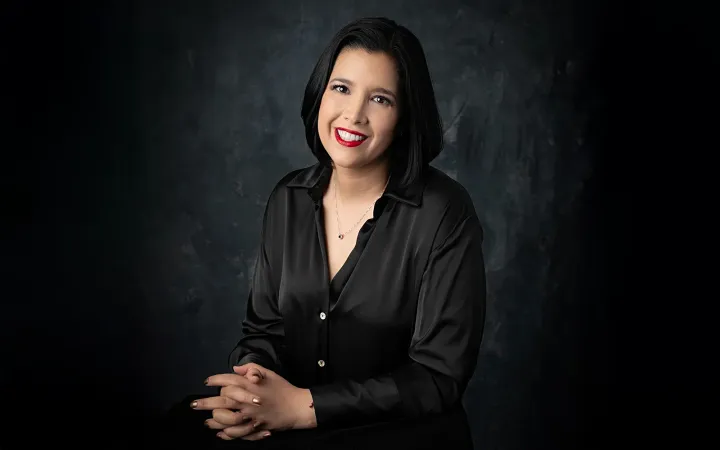
Por Adela Navarro
Era 2010 y la primera edición de Tijuana Innovadora. Don José Galicot, un entusiasta de la vida, quería cambiar la imagen de la ciudad. Sacarla de la narrativa de la inseguridad, la violencia, los asesinatos, los Arellano Félix, la prostitución y el narco, y orientarla hacia el dinamismo de una frontera multicultural, industrial, de desarrollo económico binacional, educación bilingüe, gastronomía de primer nivel, y moda.
En el salón repleto de otros entusiastas y curiosos de conocer todo lo que en Tijuana se manufactura y los alcances de su economía y vida binacional, el encargado de inaugurar el encuentro que persiste a la fecha, fue el presidente Felipe Calderón Hinojosa. Le acompañaban en calidad de invitados toda suerte de funcionarios municipales, estatales, federales, empresarios y representantes de la milicia. Cuando al micrófono mencionó a algunos de ellos, en el turno del General Alfonso Duarte Múgica, por entonces Comandante de la II Zona Militar, los ciudadanos presentes aplaudieron de manera inusitada, se pusieron de pie y empezaron a corear: “Gobernador, gobernador, gobernador”.
Pedían al notorio General que se lanzara por la gubernatura de Baja California. Tres años después, en el 2013, habría elecciones locales para renovar gubernatura, alcaldías y congreso.
Abrumado por el apoyo y la confianza ciudadana, el General solo atinó a agradecer la muestra de apoyo con ademanes, pero aquel despliegue ciudadano fue suficiente para llamar, aún más, la atención del presidente de la República, quien ascendería unos meses después a Duarte a General de División y lo nombraría Comandante de la II Región Militar.
El apoyo a Duarte no era gratuito. Como pocos, hizo dupla en algún momento con el General Sergio Aponte Polito, y le había entrado de lleno a la persecución contra el narcotráfico. Particularmente contra los miembros del cártel de los Arellano Félix y del cártel de Sinaloa, que por entonces protagonizaban una violenta y sangrienta guerra por el territorio bajacaliforniano.
El General Duarte y su tropa, acompañado siempre por un Ministerio Público Federal, había logrado aprehender a notorios criminales al servicio de ambos cárteles, con protagonismo en el brazo corruptor de los cárteles, como Luis Ramírez Vázquez El Güero Camarón, quien además delataría a cientos de policías estatales y municipales en la nómina del narcotráfico; o lugartenientes de una y de otra organizaciones criminales como Filiberto Parra Ramos, La Perra.
Férreo defensor de la seguridad y agudo militar contra el narcotráfico, la corrupción y la impunidad, el General Duarte dio muchas muestras de su compromiso a los bajacalifornianos. Instauró retenes a lo largo y ancho de Sonora, Baja California y Baja California Sur, para detectar y asegurar la droga que traficaban por esa región, y localizar y erradicar los sembradíos. Así descubrió el plantío más grande de mariguana: 120 hectáreas de la hierva sembradas en las inmediaciones de la carretera que conecta San Quintín con Guerrero Negro.
A pesar de la petición ciudadana, el General Duarte no se lanzó por el Gobierno de Baja California. Su carrera militar estaba en apogeo y de la II Región Militar fue enviado para comandar la III Tercera Región Militar con sede en Mazatlán, y de ahí a la VIII en Oaxaca, donde después de 49 años de servicio al Ejército Mexicano, causó su baja por retiro.
Cuatro años después del retiro militar, el General Alfonso Duarte Múgica quiere ser gobernador. No de Baja California, pero sí de Morelos, donde nació en la municipalidad de Puente de Ixtla.
La inseguridad es el principal problema de Morelos. No solo así lo reflejan encuestas realizadas entre la población de esa entidad, también el hecho de que los asesinatos son cada vez más frecuentes; desde masacres donde asesinan a cinco personas en una casa habitación, hasta fines de semana sangrientos en los que se contabilizan 14,15 ejecutados en tres días.
El origen de la violencia y la inseguridad en Morelos, está en la confluencia criminal de cuatro cárteles en la región, los cuales se desarrollan delincuencialmente a partir de la impunidad y la corrupción que proveen con complicidad fuerzas de seguridad.
Morelos no tiene una particularidad atractiva para el narcotráfico, no es lugar de instalación de laboratorios clandestinos, como tampoco lo es para la siembra o el trasiego de precursores, el estado pasó a ser una localidad de retiro y refugio para criminales como Amado Carrillo en los noventa, o Arturo Beltrán Leyva en los dos miles. Pero fue precisamente la llegada del cártel Beltrán Leyva, el detonante de la inseguridad y la violencia en la entidad.
Hoy día, el estado ocupa la posición doce entre los más violentos del país de acuerdo al conteo del semanario ZETA en relación a las ejecuciones en los primeros cuatro años del gobierno del presidente Andrés Manuel López Obrador. Gobernado todavía por el ex futbolista Cuauhtémoc Blanco, quien fue abanderado por el PES, pero terminó aliado de Morena.
Morelos lidia con la actividad criminal de cuatro cárteles: Guerreros Unidos, la Familia Michoacana, Los Rojos, y el Cártel Jalisco Nueva Generación. La impune guerra que estas organizaciones criminales sostienen por el narcomenudeo en la región morelense, ha vulnerado a la ciudadanía, pues de la distribución de drogas y el ajuste de cuentas, los narco criminales han pasado al cobro de piso, la extorsión, las desapariciones; así mismo se han descubierto varias narcofosas con cientos de cadáveres.
Buscando una solución y políticas de contención de esta inseguridad y violencia, el general Alfonso Duarte Múgica, ha encontrado el apoyo de una parte importante de la comunidad morelense para buscar la candidatura al gobierno del estado en la elección de 2024 cuando se renovará tanto el poder Ejecutivo como el Legislativo, y las cabeceras municipales.
El apoyo que empresarios, políticos, grupos religiosos y de la sociedad civil que ha recibido el General Duarte, no es gratuito. Le reconocen los resultados que en su lucha contra la inseguridad y violencia tuvo en sus 49 años de ejercicio militar, particularmente a partir del sexenio del presidente Felipe Calderón Hinojosa.
De concretarse la aspiración del General Duarte a lograr la candidatura al gobierno del estado de Morelos, esta sería, hasta el momento, por la Alianza Va por México. El militar en el retiro ya ha sostenido pláticas con Marko Cortés, dirigente del Partido Acción Nacional, tiene el aval de Jesús Zambrano, líder del Partido de la Revolución Democrática, y aun cuando no se ha reunido con Alejandro Moreno del Partido Revolucionario Institucional, sí ha entablado diálogo con Pablo Casas y Joaquín Henricks. Tal parece que la alianza opositora va con el General.
Encuestas recientes en aquel estado, dan el triunfo, aun sin estar abierto el proceso electoral y sin candidatos, al partido oficial, Morena, pero Duarte está dispuesto a medirse en encuestas de selección de candidatos con quienes aspiran a la candidatura desde la oposición.
El último gobernador de formación militar, fue precisamente en Morelos, Jorge Carillo Olea, quien, dicho sea, no concluyó el sexenio -sirvió cuatro años de 1994-1998- pues solicitó licencia cuando aún le quedaban dos años de gobierno, ante las acusaciones de actividades criminales.
De lograr la candidatura, el General Duarte sería el primer militar en el retiro candidato en la era de un presidente como Andrés Manuel López Obrador, conocido por su tendencia a militarizar distintas áreas de gobierno, aunque Duarte, el General que quiere ser gobernador, lo sería por la oposición, en un estado donde impera la inseguridad, una materia en la que ya se ha probado su capacidad.

Las opiniones expresadas son responsabilidad de sus autoras y son absolutamente independientes a la postura y línea editorial de Opinión 51.






Comments ()